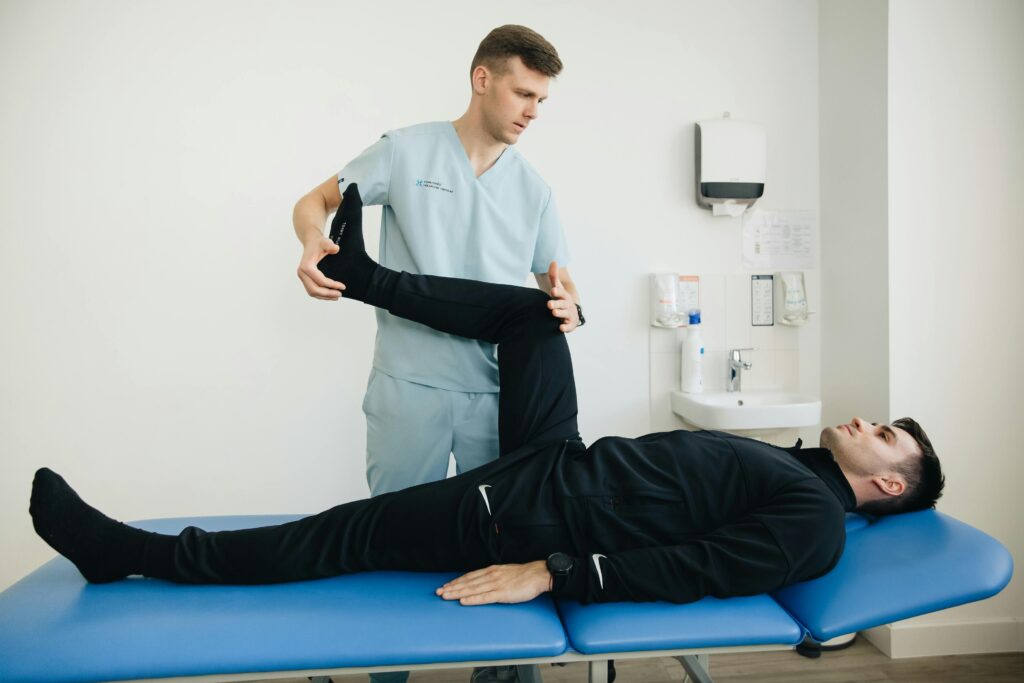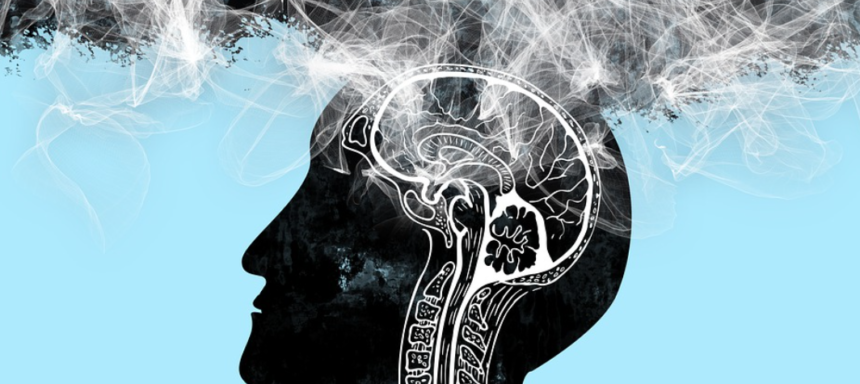As the global population ages, the implications of aging on health have become a significant focus of research, particularly in the realms of neurological and physical well-being. Recent studies have indicated that there is a growing body of evidence suggesting a link between skeletal muscle loss (sarcopenia) and an increased risk of developing dementia. This association opens new pathways for understanding how the body’s muscular system might influence cognitive health, providing new avenues for prevention and intervention.
Understanding Skeletal Muscle Loss
Skeletal muscle loss, or sarcopenia, refers to the gradual decline in muscle mass, strength, and function that occurs as people age. While it is a natural part of the aging process, it can be exacerbated by factors such as sedentary behavior, poor nutrition, chronic illness, and hormonal imbalances. Muscle mass typically peaks in early adulthood and declines slowly after the age of 30, accelerating after the age of 60. Sarcopenia is often characterized by reduced muscle strength, fatigue, and frailty, which significantly impact quality of life and independence in older adults.
What is Dementia?
Dementia is an umbrella term used to describe a range of symptoms associated with the decline in memory, thinking, and problem-solving abilities severe enough to interfere with daily life. Alzheimer’s disease is the most common form of dementia, but there are various other types, such as vascular dementia and Lewy body dementia. These conditions are often associated with a progressive loss of cognitive function, leading to problems with memory, attention, language, and judgment.
While genetics, age, and environmental factors play significant roles in the development of dementia, lifestyle factors such as physical activity, nutrition, and overall health are increasingly being recognized as important in both preventing and managing the disease. In recent years, research has also started to focus on the role of skeletal muscle and its potential influence on brain health.
The Link Between Skeletal Muscle Loss and Dementia

The connection between muscle loss and cognitive decline is complex and multifactorial, but emerging studies suggest several plausible mechanisms that may explain this relationship. Here are some key ways that sarcopenia may contribute to the increased risk of dementia:
1. Reduced Physical Activity and Brain Health
Muscles are not just the engine of movement—they also play a significant role in promoting brain health. Regular physical activity, which helps maintain muscle mass, has long been associated with improved cognitive function. When skeletal muscle declines, physical activity often decreases, leading to reduced circulation, brain oxygenation, and overall neural health. Physical inactivity can impair neurogenesis (the process of creating new neurons), contributing to cognitive decline.
Skeletal muscles also produce a variety of substances known as myokines, which have been shown to have neuroprotective effects on the brain. Myokines such as irisin and brain-derived neurotrophic factor (BDNF) promote neuroplasticity and cognitive function. Thus, when muscle mass decreases, the production of these beneficial compounds may also decline, potentially accelerating the onset of dementia.
2. Inflammation and Its Impact on the Brain
Chronic inflammation is a common factor in both sarcopenia and dementia. As people age, muscle tissues undergo a process called “inflammaging,” where low-grade chronic inflammation occurs due to the breakdown of muscle fibers. This systemic inflammation can impact various organs, including the brain. Research suggests that inflammation can lead to the accumulation of amyloid plaques and tau tangles—hallmarks of Alzheimer’s disease. Elevated inflammatory markers have been observed in individuals with muscle loss and may contribute to the onset or progression of neurodegenerative diseases.
Furthermore, inflammatory markers such as C-reactive protein (CRP) and interleukins have been found to be higher in individuals with sarcopenia, indicating a link between muscle wasting and inflammatory processes that may damage brain cells over time.
3. Hormonal Imbalance
Sarcopenia and cognitive decline are both influenced by hormonal changes that occur with aging. Testosterone, estrogen, and growth hormone are all important in maintaining muscle mass and supporting cognitive health. Reduced levels of these hormones, particularly after menopause in women and as men age, are linked to both muscle loss and an increased risk of dementia. For example, a decline in testosterone levels in men is associated with lower muscle mass and an increased risk of Alzheimer’s disease.
Additionally, insulin resistance, which is more common in individuals with low muscle mass, can contribute to both sarcopenia and dementia. The brain is highly sensitive to insulin, and insulin resistance can impair the brain’s ability to utilize glucose for energy, leading to cognitive dysfunction.
4. Vascular Health and Cognitive Decline
Vascular health plays a critical role in brain function, and there is a well-documented link between vascular disease and dementia. Muscle loss is often accompanied by reduced blood circulation and endothelial dysfunction, which impairs the ability of blood vessels to dilate and deliver oxygen-rich blood to the brain. This reduced blood flow can contribute to cognitive decline by depriving the brain of the necessary nutrients and oxygen for optimal function.
Sarcopenia has been associated with an increased risk of cardiovascular diseases, such as hypertension and atherosclerosis, which are also linked to an increased risk of dementia. The vascular changes related to muscle loss could, therefore, contribute directly to the development of neurodegenerative diseases.
5. Muscle-Brain Connectivity and Cognitive Reserve
A relatively new concept in dementia research is the idea of “cognitive reserve,” which refers to the brain’s ability to cope with damage and still function effectively. It is believed that maintaining a healthy level of physical activity, including muscle maintenance, contributes to the development of cognitive reserve, allowing the brain to withstand age-related changes or pathology.
Individuals who are physically fit, with robust muscle mass, may have a greater capacity for neuroplasticity and may be able to better compensate for brain changes associated with aging. In contrast, those with muscle loss may not have the same ability to build or maintain cognitive reserve, leaving them more vulnerable to dementia.
Prevention and Management of Skeletal muscle loss
Given the growing evidence linking sarcopenia to an increased risk of dementia, strategies to prevent or delay muscle loss may also help protect cognitive health. Here are some ways to combat sarcopenia and potentially reduce the risk of dementia:
- Strength Training: Regular resistance training is one of the most effective ways to preserve muscle mass and strength as we age. Activities like weightlifting, yoga, and bodyweight exercises can help counteract the effects of sarcopenia.
- Nutrition: A balanced diet rich in protein, vitamins, and minerals is essential for maintaining muscle mass. Adequate protein intake is particularly important, as it supports muscle repair and growth. Additionally, foods rich in omega-3 fatty acids, antioxidants, and anti-inflammatory compounds can support both muscle and brain health.
- Aerobic Exercise: In addition to strength training, regular aerobic exercise, such as walking, cycling, or swimming, is beneficial for both muscle and brain health. Aerobic exercise increases blood flow to the brain and reduces inflammation, promoting cognitive function.
- Hormonal Management: Addressing hormonal imbalances through appropriate medical intervention, such as hormone replacement therapy or other treatments, can help both muscle preservation and cognitive health, particularly in older adults.
- Early Detection: Monitoring muscle mass and strength in older adults can help identify sarcopenia early, enabling proactive interventions that may prevent or delay cognitive decline.
Conclusion
The link between skeletal muscle loss and an increased risk of dementia underscores the importance of maintaining both physical and cognitive health as we age. With more research needed to fully understand the mechanisms behind this relationship, current evidence suggests that strategies to preserve muscle mass, enhance physical activity, and reduce inflammation may provide new opportunities to prevent or delay the onset of dementia. As we continue to learn more about the connection between muscle health and brain health, these findings highlight the importance of a holistic approach to aging, where both the body and mind are nurtured to optimize well-being.
Also Read:-
https://lifescienceinsights360.com/blog/the-future-of-biotechnology-innovations-in-dna-testing/
https://lifescienceinsights360.com/blog/a-secret-to-cellular-adaptability-the-goldilocks-zone/






